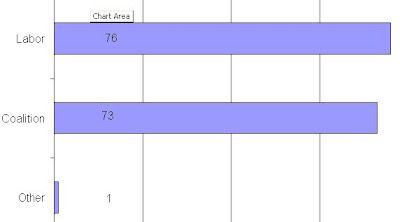
Benazir Bhutto has been buried before sunset, in the family mausoleum, next to her father.
She persisted with her drive to democracy for Pakistan, and was assassinated on 27-Dec-2007, after a rally before the scheduled elections.
Benazir Bhutto was first elected as Prime Minister in 1988; and again in 2003. It is likely that the charges of corruption brought by Pakistan Presidents Khan and Leghari. Khan had disagreements with both Bhutto and the PPP; and with the military, whose legislative power he sought to restrict. Leghari, also from Bhutto's Pakistan People Party is reported by Wikipedia to have succumbed to blackmail in bringing charges against Benazir Bhutto.
Benazir Bhutto was a woman in a man's world. Muslim societies do not easily tolerate women in positions of power: her family's strong political background and her family name undoubtedly helped.
Benazir Bhutto could become Pakistan's martyr to democracy. Maybe!
President Musharraf was, until recently, both head of the military, and President. The Military will not easily give up its power and political influence. Those who riot after Bhutto's death do themselves and their country no good. It is very likely that elections scheduled for 8-January-2008 will be cancelled, a state of emergency declared, and both Musharraf and the military will retain political control.
If they do, Pakistan will remain a divided nation. One group will have money, and/or political influence or power; the rest will have nothing, as they have now.
Benazir Bhutto's legacy could be that millions have hope of democracy, and a fairer system of government. If they don't get it, Pakistan could well become unstable, with pockets of rebellion, in a country that has somewhere near 100 nuclear weapons. Frightening!
John











